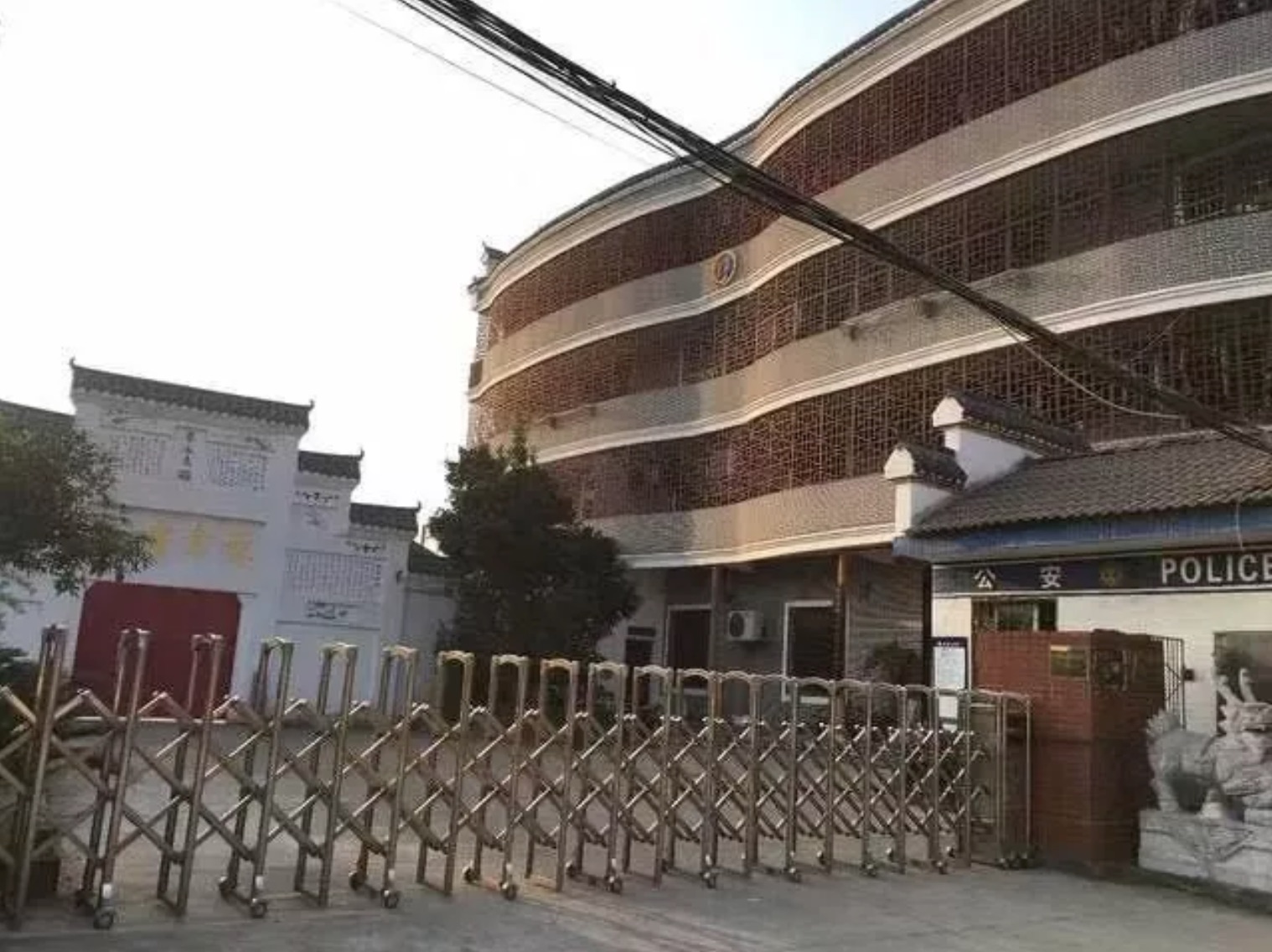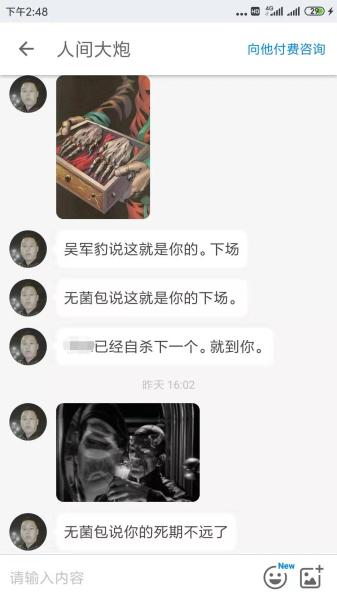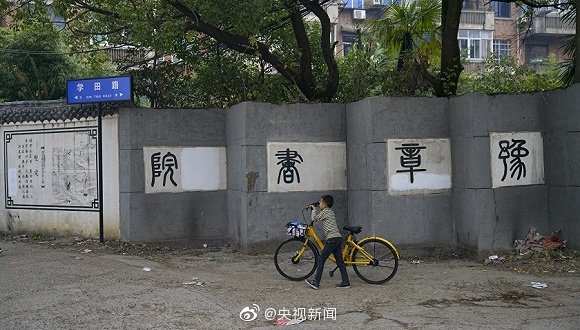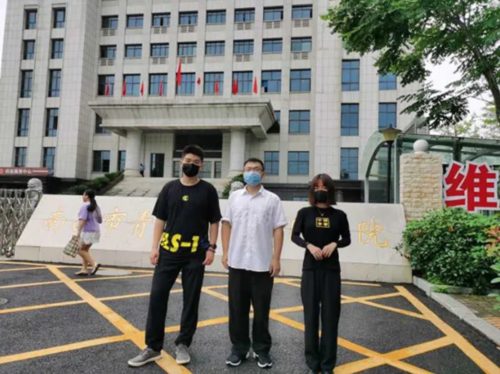Death threats for opponent of internet addiction center in China
It’s been two years since Yuzhang Academy (豫章书院 Yùzhāngshūyuàn), a Confucian institute that purportedly treats internet addiction in Nanchang, Jiangxi Province, closed its doors after a high-profile scandal over its use of torture methods on students. But earlier this month, the facility came under the public eye again after a Weibo user claimed he has received death threats from people associated with the school because of his commitment to helping former attendees seek legal justice against their abusers.

It’s been two years since Yuzhang Academy (豫章书院 Yùzhāngshūyuàn), a Confucian institute that purportedly treats internet addiction in Nanchang, Jiangxi Province, closed its doors after a high-profile scandal over its use of torture methods on students. But earlier this month, the facility came under the public eye again after a Weibo user claimed he has received death threats from people associated with the school because of his commitment to helping former attendees seek legal justice against their abusers.
The Weibo user @温柔JUNZ (Wēnróu JUNZ) has been working with former students of Yuzhang Academy to collect evidence of abuse and call on local authorities to reopen an investigation. He’s shared his work on the Quora-like site Zhihu, where someone has allegedly sent him a string of death threats.
The accused, who goes by @人间大炮 (Rénjiāndàpào) on the platform, first contacted him in 2017 in the wake of the academy’s closure, asking for his home address and threatening to kill him in retaliation for his role in facilitating Yuzhang’s shutdown. “You said the thing is not completely over, but nobody cares anymore,” @人间大炮 wrote in a direct message. “Why are you helping those students? What’s your purpose? How much do you get paid for this?” At one point, the alleged harasser mentioned Wú Jūnbào 吴军豹, the founder of the academy, saying that Wu was deep in debt and that the institute’s closure had worsened his financial situation.

It turned out @温柔JUNZ was not the only person who faced harassment from anonymous people seemingly close to Yuzhang. Zǐmù 子沐, who worked with @温柔JUNZ in helping the victims, reportedly experienced so much harassment, including doxing and death threats, that she attempted suicide this year. Soon after, @人间大炮 resurfaced, on October 24, sending @温柔JUNZ a series of threatening messages that contained a horrifying picture of two hands placed in a box, followed by the words: “This is how you’ll end up.” Stating that he was aware of 子沐’s situation, @人间大炮 went on to say that @温柔JUNZ would be next, adding that Wu had ordered his death.
When talking to Jinyun News, a Tianjing-based digital news outlet, Weibo user @wee43, who has been providing assistance to former students at Yuzhang, said (in Chinese) that he had been deeply troubled by some phone calls from unidentified persons who told him to “be careful” about his safety. @wee43 believed that he was harassed because he was trying to take Wu to court to get properly punished. “We believe Wu’s conduct likely broke the law and should be subjected to justice,” @wee43 told the publication, adding that there are rumors that Wu attempted to reopen the school but failed.

Per China News Weekly (in Chinese), a magazine run by the official China News Service, @温柔JUNZ has reported the death threats to the police. But when the publication reached out to Wu for comment, he denied any connection with the harassment, criticizing @温柔JUNZ and other people who were still hung up on the issue for “not knowing when to stop.”
In China, there is an enduring stigma surrounding people who spend an unhealthy amount of time playing video games or surfing the internet. While experts still debate whether internet addiction should be classified as a disorder, Chinese media often portrays it as a serious behavioral condition that requires treatment. The rhetoric has made parents extremely concerned about their children’s internet use, and has led to the rise of a number of so-called “digital detox” rehab programs across the country, starting around 2015. Usually without clinical qualifications, these facilities convince worried parents that internet addiction is a disease that can be cured through methods such as electroshock therapy and other forms of corporal punishment.
In 2016, the Internet Addiction Treatment Center in Linyi, Shandong Province, was exposed as using extreme torture methods on “troublesome” teenagers who were sent there by their parents. In October 2017, @温柔JUNZ published a lengthy article (in Chinese) on social media, which revealed that Yuzhang Academy also engaged in similar practices, such as locking students up in cells for days, whipping them with steel rods, and forcing them to do heavy labor. After the article gained a lot of attention, prominent media outlets like CCTV weighed in to condemn Yuzhang’s abuse of students. Following local authorities’ investigation into the case, the facility agreed to shut its doors to avoid further escalation of the matter.
But according to China News Daily, the company behind Yuzhang Academy is still active, only under a different name. The move was interpreted by @温柔JUNZ as the company’s attempt to distance itself from its tarnished image and plot a comeback with new facilities in the future.






